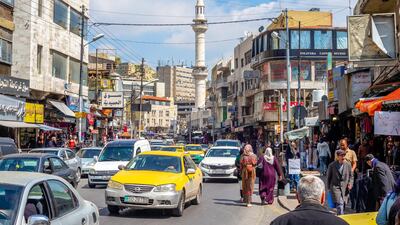The World Bank has amended its assistance programme in Jordan by adding a new pillar to improve economic opportunities for women as part of efforts to help the kingdom steer its post-Covid economic recovery.
The Washington-based lender also mobilised $1.1 billion in additional financing for new and pipeline projects to help Jordan pull through the pandemic.
This is part of the performance and learning review of the World Bank Group’s Country Partnership Framework, which guides the lender’s support to a country.
The performance and learning review summarises the framework for Jordan for the 2017 to 2022 fiscal years.
It also added a new pillar, a human capital review focused on youth employment, as well efforts to stimulate a sustainable “green” recovery.
“The World Bank Group is committed to adapting its programme to support Jordanians to weather the multi-layered effects of the Covid-19 crisis, including [its effect] on their health, education, and livelihoods,” said Saroj Jha, World Bank Mashreq regional director.
Jordan, which relies on foreign aid and grants to finance its fiscal and current account needs, is trying to overhaul its economy and cut state subsidies as public debt and unemployment increase.
The kingdom is also looking to boost oil production and expand its non-oil economy. However, a large number of Syrian refugees and the outbreak of Covid-19 have deepened its economic and fiscal woes.
Jordan’s economy has been hit hard by the pandemic, exacerbating its low growth, high unemployment and growing debt. It contracted by 1.6 per cent last year while unemployment rose to 24.7 per cent in the fourth quarter.
The World Bank also estimates that half of Jordan’s youths are unemployed.
Jordan also made progress on some reforms required for economic recovery during the performance and learning review period, the lender said.
Some of the reforms include the launch of licensing reforms, the expansion of Jordan’s social protection system, a revision of the bylaws for public procurement and the adoption of a new private-public partnership law, legislation on insolvency and secured transactions, a climate bylaw and bylaws on monitoring and inspections.
Launched in 2016 in the context of the Syrian crisis, the Jordan CPF focuses on encouraging a private sector-led growth and improving unemployment opportunities.

